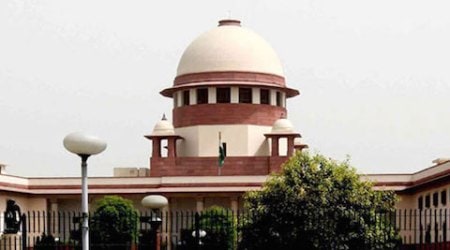 Under the rural job scheme legislation, labourers have to be paid wages within 15 days of finishing work. For every single day of delay after that, they are eligible for compensation in terms of interest generated on their wage.
Under the rural job scheme legislation, labourers have to be paid wages within 15 days of finishing work. For every single day of delay after that, they are eligible for compensation in terms of interest generated on their wage.
An independent study on 92 lakh MGNREGA transactions across 10 states has found that the central government does not calculate or pay any compensation for a part of the last-mile delay before money reaches bank accounts of rural workers. The study done independently by Rajendran Narayanan of the Azim Premji University said the money the government does not pay rural workers constitutes 57 per cent of the total compensation due to workers.
Under the rural job scheme legislation, labourers have to be paid wages within 15 days of finishing work. For every single day of delay after that, they are eligible for compensation in terms of interest generated on their wage.
Narayanan said the central government calculates the compensation amount only up to the point that the fund transfer order (FTO) is generated. “The delay from then on until the money reaches the bank account of the worker is not captured at all,” he said.
He said that in the 92 lakh transactions for the year 2016-17, the amount of money calculated as compensation for delay was Rs 15 crore. But the delay not taken into account after the FTO generation would lead to a cumulative compensation of Rs 20.3 crore. “This means 57 per cent of the payable compensation is not even being calculated by the government,” he said, adding that when the findings are projected nationally, the compensation amount being officially acknowledged is Rs 519 crore, while Rs 689 crore of compensation is not even being calculated.
The findings show that there is on average a 63-day delay that is unaccounted for, cases where the state government completes its process on time but the central government or payment agencies’ delays are not calculated.
Yogendra Yadav of the political outfit Swaraj Abhiyan, which is the petitioner in a case relating to implementation of MGNREGA in drought-hit states, said the unaccounted for delay has been seen more in non BJP-ruled states. “In Jharkhand it is nine days, Chhattisgarh 13 days, Karnataka 19 days, Rajasthan 12 days and Madhya Pradesh 6 days,” he said.







